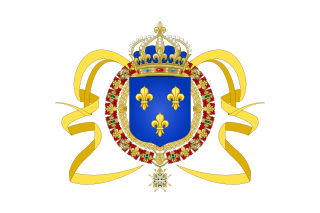 W
WThe Blockade of Saint-Domingue was a naval campaign fought during the first months of the Napoleonic Wars in which a series of British Royal Navy squadrons blockaded the French-held ports of Cap Français and Môle-Saint-Nicolas on the northern coast of the French colony of Saint-Domingue, soon to become Haiti, after the conclusion of the Haitian Revolution on 1 January 1804. In the summer of 1803, when war broke out between the United Kingdom and the French Consulate, Saint-Domingue had been almost completely overrun by Haitian forces commanded by Jean-Jacques Dessalines. In the north of the country, the French forces were isolated in the two large ports of Cap Français and Môle-Saint-Nicolas and a few smaller settlements, all supplied by a French naval force based primarily at Cap Français.
 W
WHenry Christophe was a key leader in the Haitian Revolution and the only monarch of the Kingdom of Haiti.
 W
WThe First Empire of Haiti, officially known as the Empire of Haiti, was an elective monarchy in North America. Haiti was controlled by France before declaring independence on January 1, 1804. The Governor-General of Haiti, Jean-Jacques Dessalines, created the empire on September 22, 1804. Proclaiming himself Emperor Jacques I, he held his coronation ceremony on October 6. The constitution of May 20, 1805, set out the way the empire was to be governed, with the country split into six military divisions. The general of each division corresponded directly with the emperor or the general in chief appointed by the emperor. The constitution also set out the succession to the throne, with the crown being elective and the reigning emperor having the power to appoint his successor. The constitution also banned white people, with the exception of naturalised Germans and Poles, from owning property inside the empire.
 W
WThe 1804 Haiti massacre was carried out against the French population and French Creoles remaining in Haiti following the Haitian Revolution, by soldiers, mostly former slaves, under orders from Jean-Jacques Dessalines. He had decreed that all suspected of conspiring in the acts of the expelled army should be put to death. From early January 1804 until 22 April 1804, squads of soldiers moved from house to house throughout Haiti, torturing and killing entire families. Between 3,000 to 5,000 people were killed.
 W
WThe Haitian Revolution was a successful insurrection by self-liberated slaves against French colonial rule in Saint-Domingue, now the sovereign state of Haiti. The revolt began on 22 August 1791, and ended in 1804 with the former colony's independence. It involved blacks, mulattoes, French, Spanish, and British participants—with the ex-slave Toussaint Louverture emerging as Haiti's most charismatic hero. The revolution was the only slave uprising that led to the founding of a state which was both free from slavery, and ruled by non-whites and former captives. It is now widely seen as a defining moment in the history of the Atlantic World.
 W
WThe first Republic of Haiti controlled the southern portions Haiti from 1806 until 1820. The republic, commonly referred to as South Haiti during its existence, was created on October 17, 1806 following the assassination of Emperor Jacques I and the overthrow of the First Empire of Haiti. The southern Republic of Haiti was ruled by General Alexandre Pétion, a free person of color, as President from March 9, 1807 until his death on March 29, 1818. He was succeeded by Jean-Pierre Boyer.
 W
WSaint-Domingue was a French colony on the Caribbean island of Hispaniola from 1659 to 1804, in what is now Haiti.
 W
WThe Saint-Domingue expedition was a French military expedition sent by Napoleon Bonaparte, then First Consul, under his brother-in-law Charles Victor Emmanuel Leclerc in an attempt to regain French control of the Caribbean colony of Saint-Domingue on the island of Hispaniola, and curtail the measures of independence taken by the former slave Toussaint Louverture. It landed in December 1801 and, after initial success, ended in a French defeat at the battle of Vertières and the departure of French troops in December 1803. The defeat ended forever Napoleon's dreams of a French empire in the West.
 W
WThe State of Haiti was the name of the state in northern Haiti. It was created on October 17, 1806 following the assassination of Emperor Jacques I and the overthrow of the First Empire of Haiti. The northern State of Haiti was ruled by Henri Christophe originally as Provisional Chief of the Haitian Government from October 17, 1806 until February 17, 1807 when he became President of the State of Haiti. The 1807 constitution for the State of Haiti made the post of president a position for life with the president having the power to appoint his successor. On March 28, 1811 President Henri was proclaimed King Henri I, thereby dissolving the State of Haiti and creating the Kingdom of Haiti.